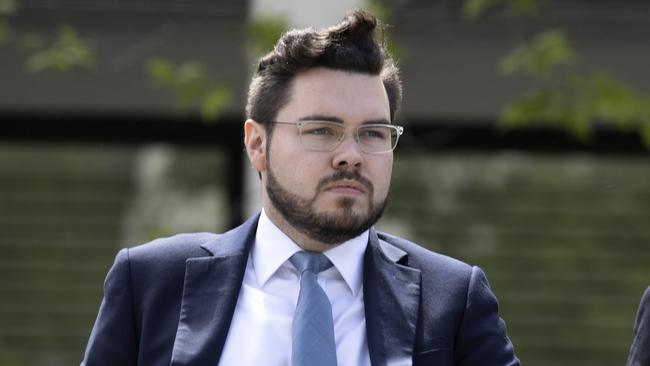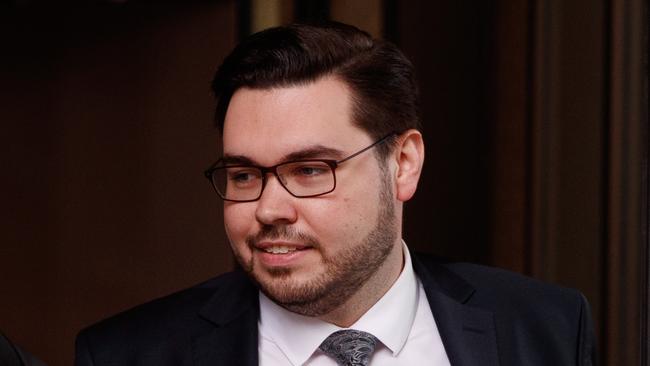ACT cracks down on rogue jurors after Bruce Lehrmann mistrial
Jurors who go rogue in the ACT will face up to two years behind bars under tough new misconduct laws.

Canberra Star
Don't miss out on the headlines from Canberra Star. Followed categories will be added to My News.
Jurors who go rogue in Canberra will face up to two years behind bars under tough new misconduct laws prompted by the abortion of Bruce Lehrmann’s criminal trial.
The ACT Legislative Assembly passed a suite of jury reforms on Wednesday, specifically criminalising improper inquiries by jurors and moving to allow majority verdicts.
The new laws make it an offence for jurors to conduct their own investigations outside the courtroom, a practice that can cause mistrials.
That was what occurred when Mr Lehrmann, a former federal Liberal Party staffer, faced an ACT Supreme Court trial in 2022 over the alleged rape of ex-colleague Brittany Higgins.
At the end of a day’s deliberations, a sheriff’s officer accidentally knocked over a juror’s folder while tidying the jury room.

The officer noticed that the folder contained academic research, which was not in evidence, about sexual assault.
The chance discovery forced Chief Justice Lucy McCallum to abort the trial of Mr Lehrmann, who maintains his innocence after the case was later discontinued entirely.
When she discharged the jury, Chief Justice McCallum said she had warned its members at least 17 times against conducting independent research or inquiries.
The judge noted such conduct was specifically outlawed in NSW, but not in the ACT.
Chief Justice McCallum’s comments were later cited by ACT Attorney-General Shane Rattenbury as the catalyst for the new juror misconduct provision that passed on Wednesday.

The new offence is punishable by a maximum penalty of two years in jail.
It is not the only change to the territory’s jury system, with majority verdicts also now permitted.
While ACT law previously required unanimous decisions in jury trials, judges will now be able to accept majority verdicts of 11-1 in certain circumstances.
Before a court can accept such a verdict, jurors must have deliberated for at least six hours.
Judges must also be satisfied it is unlikely jurors will reach a unanimous verdict after further deliberations.
“In a diverse community people may not always agree, resulting in hung juries,” Mr Rattenbury said after the reforms passed the Legislative Assembly on Wednesday.
“This not only causes delays and increased costs, but also adds emotional strain for victims, accused people and others involved in the proceedings.
“The community expects both an efficient and fair justice system.
“These reforms will help prevent retrials and give the community confidence in our jury system.”
Mr Rattenbury said the ACT justice sector had been “strongly supportive” of the reforms.
But not everyone has been enthusiastic about the changes, with the ACT Law Society’s criminal law committee previously describing the new misconduct provision as unnecessary.
Last year, the committee expressed the view that case law established that juror misconduct could already be dealt with by a contempt of court charge.
The committee also noted research had shown specific criminalisation of juror misconduct could have negative consequences.
These included greater numbers of people applying to be excused from jury duty, and jurors becoming increasingly reluctant to report any wrongdoing by their peers.
While the society supported the move to allow majority verdicts, bringing the ACT into line with every other Australian jurisdiction, it expressed reservations about whether such decisions should be accepted after only six hours of jury deliberations.




